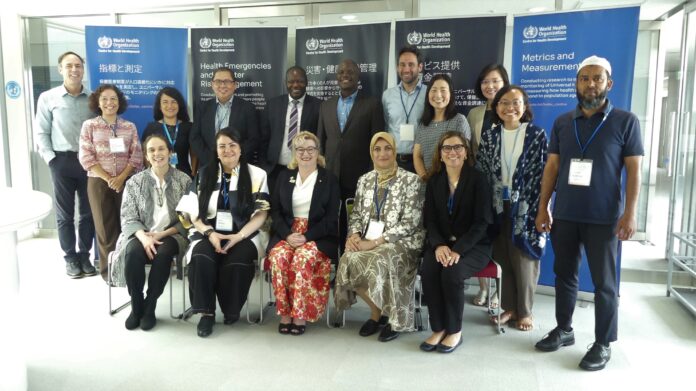The MENARAH Network, led by Professor Shereen Hussein, has taken on the critical mission of raising awareness about the unmet health and social care needs of older people in the Eastern Mediterranean Region. Despite the region’s increasing ageing population, older adults continue to face significant barriers to receiving adequate care, especially in countries affected by conflicts, economic instability, and limited healthcare infrastructure.
Professor Hussein, a thought leader in health and social care policy, is at the heart of this effort. As the founder of MENARAH and a professor at the London School of Hygiene and Tropical Medicine, she has been instrumental in addressing these issues on an international scale. Professor Hussein’s work highlights the often-overlooked care needs of older adults, emphasizing that population ageing is not just a challenge for high-income countries but is increasingly relevant to low- and middle-income countries (LMICs) in the region.
During the WHO Technical Meeting on Strengthening Data on Unmet Care Needs of Older Persons, held in Kobe, Japan in June 2024, Professor Hussein presented early findings from the Eastern Mediterranean region. She underscored how the region’s unique challenges—such as conflicts, fiscal constraints, and the growing burden of noncommunicable diseases—exacerbate the difficulties faced by older populations in accessing essential health and social services.
9789240099289-engThe Eastern Mediterranean is highly diverse, ranging from rapidly ageing Gulf countries to conflict-affected nations like Syria and Yemen. Professor Hussein’s research shows that external factors, such as wars and the COVID-19 pandemic, have compounded the unmet care needs of the region’s older populations. Many older adults in these countries are unable to access care due to logistical challenges, affordability issues, and gaps in formal social support systems.
The MENARAH Network has emerged as a key platform to drive forward research and policy action. Under Professor Hussein’s leadership, the network brings together academics, policymakers, and healthcare professionals across the region to address these pressing challenges. MENARAH advocates for the development of comprehensive care frameworks that ensure older people in the Middle East and North Africa have access to engagement opportunities and the care and support they need.
In her role as Chair of the Consortium for Advancing Research and Evaluation in Tracking Unmet Health and Social Care Needs of Older Populations (CARE∞TRACK), Professor Hussein is at the forefront of promoting evidence-based solutions. The CARE∞TRACK initiative aims to establish standardized methods for monitoring and addressing unmet care needs, especially in LMICs. By fostering collaboration and sharing expertise, MENARAH and CARE∞TRACK are leading the charge toward more inclusive and equitable healthcare systems.
As population ageing accelerates, MENARAH’s work is crucial in ensuring that the most vulnerable—older adults—are not left behind. By advocating for better data collection, policy changes, and greater regional cooperation, MENARAH and its partners are making significant strides toward meeting the health and social care needs of older people in the MENA region. This effort not only addresses a gap in healthcare but also contributes to advancing universal health coverage (UHC), as outlined by the World Health Organization‘s global goals.
Founder and Director
Shereen Husseinis a Health and Social Care Policy professor at the London School of Hygiene and Tropical Medicine (LSHTM), United Kingdom.
Shereen Founded the MENARAH Network in 2019, through an initial grant from the Global Challenge Research Fund, UKRI. She is a medical demographer with expertise in ageing, family dynamics, migration and long-term care systems. Shereen regularly collaborates with the United Nations, the World Health Organisation and the World Bank in policy and research focused on ageing in the Middle East and North Africa Region.
Shereen received her undergraduate degree in statistics and a postgraduate degree in computer science at Cairo University. She completed an MSc in medical demography at the London School of Hygiene and a PhD in quantitative demography and population studies at the London School of Economics and Political Science, United Kingdom.



